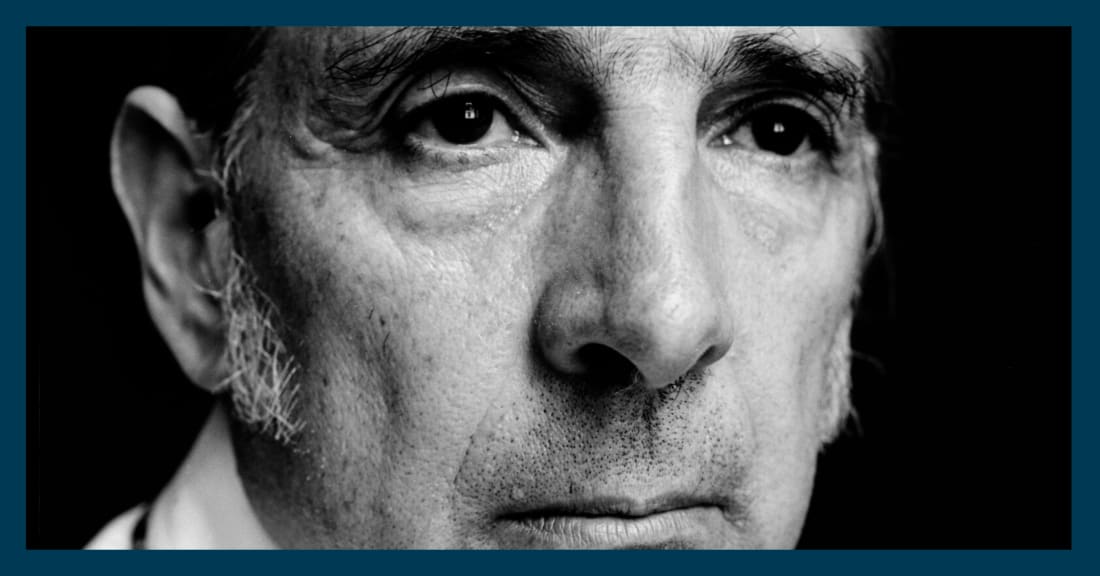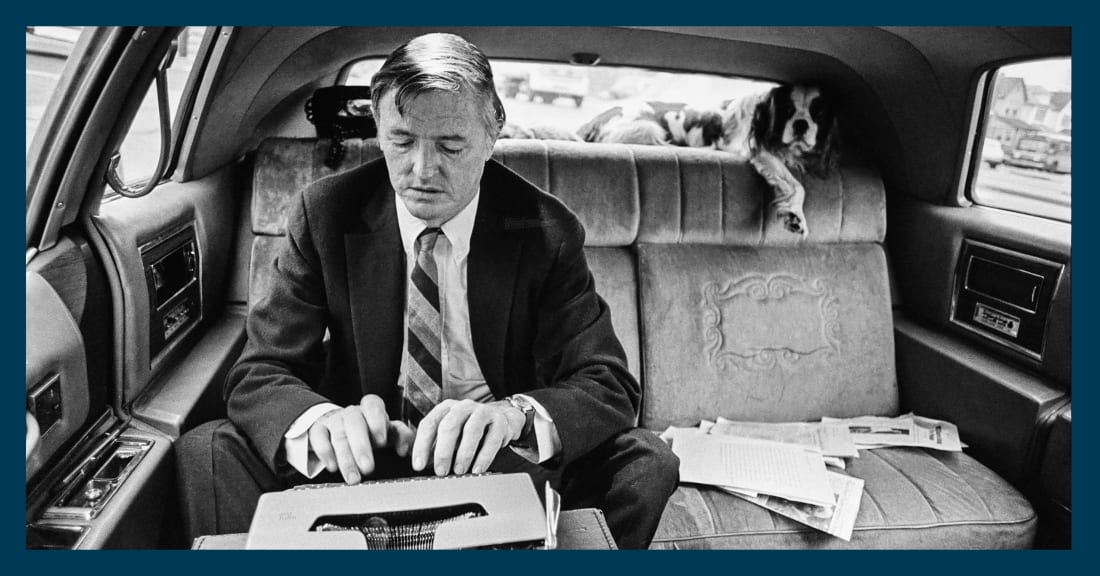|
 |
AI and Searle's Chinese Room Argument
Intercollegiate Review | Conservatism's sharpest voices, curated weekly. ISI's weekly newsletter brings you the best in serious conservative thought.
Escaping the Machine
As moral and cultural chaos spreads, some conservatives have considered a retreat—escaping society’s ills and finding refuge in local communities. Yet some dangers are harder to escape than others.
In an interview with Ross Douthat for the New York Times, Paul Kingsnorth argues that the biggest threat to humanity today is what he’s dubbed “the Machine:” the all-encompassing web of technology that surrounds us. Kingsnorth describes his own attempt to withdraw from the Machine by moving to a homestead in Ireland. Even there, he discovered, total escape is impossible. He argues the Machine is ultimately waging a war against human nature itself. The best we can do is define our relationship with technology rather than allow the Machine to define it for us.
Douthat and Kingsnorth also discuss a practical question: how do we distinguish between helpful technologies that serve humanity and dangerous technologies that seek to override it? Douthat is more optimistic about technological ambitions, such as space exploration, while Kingsnorth warns against the mindset that assumes every limit should be broken.
Read Douthat and Kingsnorth’s full conversation here.
|
Thinking About Intelligence
The AI revolution has millions of people wondering if their jobs are on the chopping block. If today’s models can already do so much, what’s left that only humans can do? This practical worry quickly becomes a more profound question about human nature itself. If we don’t know what makes us human, it’s harder to distinguish man from machine.
In a recent article for First Things, Edward Feser considers these questions in conversation with the philosophy of John Searle, who passed away two months ago at the age of 93. Searle spent decades wrestling with these exact issues. Feser sketches Searle’s remarkable life and career, from his early involvement in the student protests of the 1960s to his later defense of free will.
Searle’s most famous contribution to philosophy is the Chinese Room Argument, which compares a computer to a man who doesn’t know Chinese but is stuck in a room filled with Chinese symbols. The man has a handbook that tells him which symbol combinations answer each question he’s presented with. To the people outside, it looks like the man understands Chinese perfectly. Yet inside the room, he understands nothing. Searle’s point is the same: by merely manipulating symbols without understanding, computers fall short of real intelligence.
What do you think of Searle’s analogy? Learn more by reading Feser’s article here.
Compendium
Every article we feature here is available to read for free. Articles from paywalled publications are available through gift links.
Ruth Graham on the rise of Orthodoxy in America in The New York Times (available for free via gift link).
Megan Agathon on a Platonic reading of AI-generated content in Palladium Mag.
Sohrab Ahmari on the nuances of the Vice President’s stance on immigration in UnHerd.
Jean M. Twenge on the technologization of the classroom and decline of learning in The New York Times (available for free via gift link).
Lane Scott on the case for multigenerational home ownership in Matriarch Goals.
Rose Horowitch on the implications of a recent UC San Diego report on student preparedness in The Atlantic (available for free via gift link).
Andrew Berg on a Christian response to the current housing crisis in Plough.
This week, from ISI’s Digital Media:

In the latest episode of Modern Age with Dan McCarthy, Dan covers President Trump’s new mortgage plan, its economic implications, and potential solutions in America’s energy sector. He asks if conservatives can offer a real path toward ownership, stability, and the American dream.
Subscribe to Modern Age with Dan McCarthy here.
This week, from the Collegiate Network:
ISI’s Collegiate Network supports over 80 student-run publications across the country, empowering students to run independent college newspapers, magazines, and journals that report on important issues ignored by the mainstream media.
American Bishops Object to “Indiscriminate Deportations” in Rare Message via The Irish Rover
A unique USBCC message that condemns “indiscriminate mass deportations,” arguing for both secure borders and Christian compassion.I’m a Questbridge Student. Legacy Admissions Shouldn’t Be Caricatured. via The Claremont Independent
A first-generation Claremont McKenna student argues that banning legacy admissions may hurt the very underprivileged applicants it claims to help.We Can Refill Lake Lag: A History, and A Call to Action via The Stanford Review
Stanford’s once-beloved Lake Lagunita lies dry because of an outdated 2013 federal agreement, and this article calls for it to be overturned.Faculty Debate: “The State of Politics in America” via The Jefferson Independent
A recap of UVA’s “State of Politics in America” faculty debate between Professors Stam and Leblang, covering all topics from tariffs and illegal immigration to transgender athletes and campus speech.The Right’s Romantic Rebellion via The Chicago Thinker
A claim that the modern Right is less a rigid, coherent ideology than a Romantic revolt of the spirit.
Visit our Student Journalism section to read more from the Collegiate Network.
The Life and Times of William F. Buckley, Jr.
Few individuals have shaped American conservatism more than William F. Buckley, Jr. From kick-starting organizations like ISI and National Review to hosting the highly popular TV show Firing Line, Buckley used his quick wit and dogged energy to bring conservative ideas to millions.
For this week’s article from Modern Age, David B. Frisk reviews a new biography of Buckley by Sam Tanenhaus: Buckley: The Life and the Revolution That Changed America. While Frisk applauds the depth of research in Tanenhaus’s 860-page tome, he nonetheless takes some issues with Tanenhaus’s approach. Frisk believes that the author should have focused on the ideas that Buckley championed rather than recounting colorful episodes from his personal life. A deeper dive into Buckley’s thought, Frisk argues, would have better illuminated his influence on conservative thought and our nation.
Frisk appreciates Tanenhaus’s portrait of Buckley the man and his personal virtues. Tanenhaus highlights Buckley’s “imagination and generosity,” his “kindness and warmth,” and the “vacuum” left after his death. Frisk says this “friendly fascination” balances any negatives from the author.
Read Frisk’s review here on the Modern Age website.
Modern Age is ISI’s flagship publication. Visit modernagejournal.com and subscribe for a free daily newsletter.
“A conservative is someone who stands athwart history, yelling Stop, at a time when no one is inclined to do so, or to have much patience with those who so urge it.”
– William F. Buckley, Jr.
Celebrate America’s semiquincentennial with ISI and help shape the next 250 years of our country. Your support of the America 500 Education Fund will help ISI reach, teach, and launch the next generation of conservative leaders. Visit isi.org/america500 to learn more.


